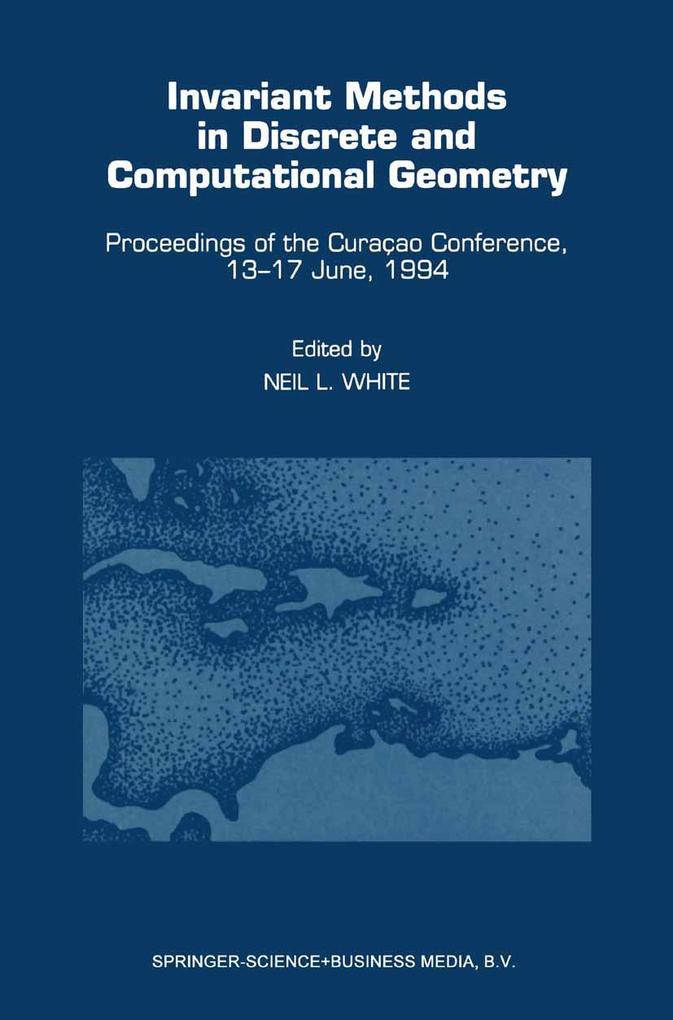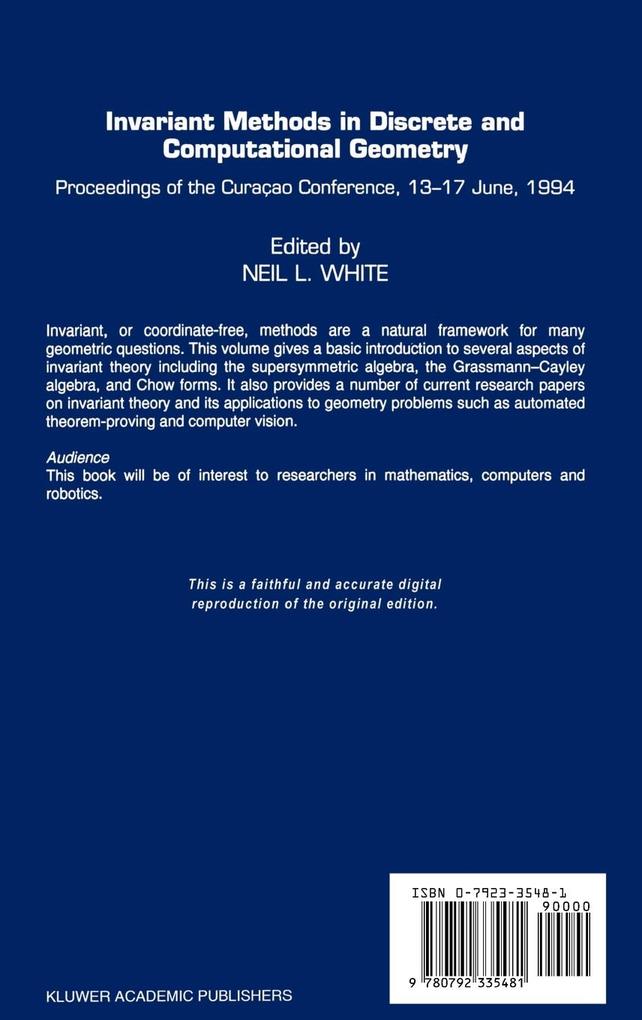
Zustellung: Mi, 16.07. - Sa, 19.07.
Versand in 7 Tagen
VersandkostenfreiBestellen & in Filiale abholen:
Invariant, or coordinate-free methods provide a natural framework for many geometric questions. Invariant Methods in Discrete and Computational Geometry provides a basic introduction to several aspects of invariant theory, including the supersymmetric algebra, the Grassmann-Cayler algebra, and Chow forms. It also presents a number of current research papers on invariant theory and its applications to problems in geometry, such as automated theorem proving and computer vision.
Audience: Researchers studying mathematics, computers and robotics.
Audience: Researchers studying mathematics, computers and robotics.
Inhaltsverzeichnis
The Power of Positive Thinking. - to Chow Forms. - Capelli s Method of Variability Ausiliarie, Superalgebras, and Geometric Calculus. - Letterplace Algebra and Symmetric Functions. - A Tutorial on Grassmann-Cayley Algebra. - Computational Symbolic Geometry. - Invariant Theory and the Projective Plane. - Automatic Proving of Geometric Theorems. - The Resolving Bracket. - Computation of the Invariants of a Point Set in P3 P3 from Its Projections in P2 P2. - Geometric Algebra and Möbius Sphere Geometry as a Basis for Euclidean Invariant Theory. - Invariants on G/U × G/U × G/U, G = SL(4, C). - On A Certain Complex Related to the Notion of Hyperdeterminant. - On Cayley s Projective Configurations An Algorithmic Study. - On the Contruction of Equifacetted 3-Speres. - Depths and Betti Numbers of Homology Manifolds.
Produktdetails
Erscheinungsdatum
31. Juli 1995
Sprache
englisch
Auflage
1995
Seitenanzahl
346
Herausgegeben von
Neil L. White
Verlag/Hersteller
Produktart
gebunden
Abbildungen
XIV, 328 p.
Gewicht
685 g
Größe (L/B/H)
241/160/24 mm
ISBN
9780792335481
Entdecken Sie mehr
Bewertungen
0 Bewertungen
Es wurden noch keine Bewertungen abgegeben. Schreiben Sie die erste Bewertung zu "Invariant Methods in Discrete and Computational Geometry" und helfen Sie damit anderen bei der Kaufentscheidung.










